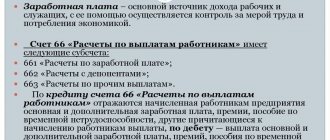Continuous work experience is the period of activity under an employment agreement. This concept was widely used in the USSR, since the calculation of benefits and other payments depended on it. Since 2007, it has practically lost its legal force. Currently, the term “insurance period” is used. Continuous will only be needed for some professions, as a way to receive income supplements. The article discusses the definition and features of continuous work experience in the Labor Code: what it affects, the main provisions and features of accrual. And also cases in which the length of service will not be interrupted.
The concept of continuous work experience according to the Labor Code of the Russian Federation
Continuous work experience (NTS) according to the Labor Code of the Russian Federation - the time during which work is performed in a certain organization is considered. To keep it, you need to get a new job no later than in 3 months. Before the 2002 pension reform, continuous service everywhere affected:
- the amount of disability benefits (sick leave payments);
- the amount of bonuses and allowances;
- receiving various benefits;
- possibility of an increased pension;
- registration of various social benefits.
Continuous service after dismissal at will or by article
The duration of a specific period is determined by factors such as the reason for dismissal, characteristics of the job, and others. In the Labor Code of the Russian Federation, this norm is replaced by the concept of “insurance period”. It is determined by the number of insurance premiums for the entire working period. The duration of work in each organization does not matter.
Why you need continuous work experience, read here.
In modern legislation, the “continuous work experience” norm is applied less actively. In practice, it persists in specific labor sectors.
Insurance experience
In 2007, the Law “On Compulsory Social Insurance in Case of Temporary Disability and in Connection with Maternity” No. 255-FZ came into force. According to it, the amount of benefits after sick leave is calculated based on the continuous insurance period. NTS is used only in a few professional industries.
Special work experience
Like “general work experience,” the term “special work experience” was designated in the RSFSR Law of November 20, 1990 No. 340-1 “On state pensions in the RSFSR” (Article 88). It meant the total duration of a certain labor activity or service necessary for the assignment of an old-age pension in connection with special working conditions, work in the Far North, as well as a pension for long service. With changes in legislation, the concept of this type of experience was also modified.
Special work experience is a period allocated from the total duration of work, which depends either on working conditions (for example, harmful) or on the type of activity (for example, a bus driver on regular city passenger routes).
Currently, special work experience applies:
- For early assignment of an insurance pension - you can read more about this in Art. Art. 30 - 33 of the Federal Law of December 28, 2013 No. 400-FZ “On Insurance Pensions” of the Russian Federation.
- To establish compensatory salary bonuses - for example, in relation to public sector employees, an order of the Ministry of Health and Social Development of the Russian Federation dated December 29, 2007 No. 822 was issued “On approval of the List of types of compensation payments in federal budgetary, autonomous, government institutions and clarifications on the procedure for establishing compensation payments in these institutions.”
- To establish incentive bonuses to wages - in relation to the above employees, read the order of the Ministry of Health and Social Development of the Russian Federation dated December 29, 2007 No. 818 “On approval of the List of types of incentive payments in federal budgetary, autonomous, government institutions and explanations on the procedure for establishing incentive payments in these institutions."
- To provide additional leave, for example, for working under harmful and (or) dangerous working conditions (Article 121 of the Labor Code of the Russian Federation).
Basic provisions of the Labor Code of Russia
Continuous experience involves a period of work in one organization or company. When moving to another place of work, it may be interrupted. Only the insurance period is retained. NTS is retained for new employment under the following conditions:
- a new employment contract is concluded for a maximum period of 30 days;
- for regions of the Far North or work outside Russia, this duration is 60 days;
- in case of liquidation of an enterprise or reduction of staff, a new employment agreement can be concluded within 3 months.
If a husband or wife moves to work in another region, we are talking about moving the whole family. In this case, the second spouse’s work experience is not interrupted. No time frame has been established for the new employment agreement.
Continuous service is maintained only if the employee leaves at his own request. If the dismissal was “under an article”, only the insurance period is retained.
Continuity of service will not be needed when determining the size and procedure for calculating a pension.
Features of calculating continuous service according to law
To calculate continuous experience you will need one of these documents:
- employment history;
- labor agreement (contract);
- military ID;
- certificate from the archive (or from the last place of work);
According to the Labor Code of the Russian Federation, the concept of “continuous work experience” does not apply. But according to the Law of the Russian Federation “On Employment of the Population in the Russian Federation” No. 1032-1, continuity of length of service under an employment contract is possible during the following periods:
- pregnancy;
- baby care;
- studying at a university;
- conscription for military training;
- alternative (civil) service;
- performance of various government duties;
- part-time work;
- part-time.
Continuity of work experience is also ensured for officially registered unemployed people if they are paid benefits.
We also recommend that you read about the minimum length of service for calculating a pension in this material.
Until 2007, NTS was calculated according to the formula: insurance period + continuous. After this time, a calculation is made by adding up the periods of work at one place of work.
NTS is not interrupted even for valid reasons. These include:
- moving to another place of residence;
- business trip outside of Russia;
- caring for an HIV-infected child.
Continuous service can be renewed for a pensioner who has decided to return to work and for military personnel discharged from their previous place of service.
Work experience in specialty
In order to work in certain positions, it is necessary to confirm your work experience in the relevant specialty (work experience), that is, the duration of activity according to the qualification document. Such a document can be a diploma, certificate, certificate, etc. For example, to become a prosecutor of a constituent entity of the Russian Federation, you must have at least 7 years of service (work) experience in the bodies and institutions of the prosecutor's office in positions for which class ranks are awarded (Part 4, Article 15.1 of Federal Law No. 2202-1 of January 17, 1992 "On the Prosecutor's Office of the Russian Federation").
Read about how to calculate the corresponding type of experience and what documents confirm it in other articles on our website.
Estimate
conclusions
Continuous length of service used when working under an employment agreement is the time of activity in one organization. Has the following features:
- Continuous service was essential before the 2002 pension reform. With its help, disability benefits were determined, as well as an old-age labor pension. Later, this function began to be performed only by insurance experience.
- Since 2007, continuous service has only local significance. At the federal level, it applies only to a few professional industries. Their list includes work in medical institutions, as well as in the Far North and other regions with a difficult climate.
- There are good reasons for which continuous service is maintained even during breaks in work. These include studying at a university, conscription for military training, maternity leave, child care for up to one and a half years, and others.
- The main document for calculating continuous service is the work book.
When calculating continuous length of service, activities at the main job and part-time work are taken into account.
Commentary on Article 314 of the Labor Code of the Russian Federation
Law of the Russian Federation of February 19, 1993 N 4520-1 “On state guarantees and compensation for persons working and living in the Far North and equivalent areas” did not have norms with such content. It, in Article 12, provided that the procedure for establishing and calculating the length of service for receiving a percentage increase in wages is determined by the Government of the Russian Federation.
Despite the fact that Article 314 of the Labor Code does not directly say this, it deals with the establishment and calculation of length of service for receiving guarantees and compensation by persons working in the named areas and localities.
At the federal level, only state guarantees and compensation can be established. Therefore, the procedure for calculating length of service adopted by the Government of the Russian Federation applies only to them. With regard to guarantees and compensation for employees of organizations financed from the budget of a constituent entity of the Federation or from the local budget, the rules for provision apply, respectively, established by the state authorities of the constituent entities of the Federation or local government bodies. These rules may apply to cases of provision of additional guarantees and compensation, rules established for the provision of state guarantees and compensation, including the rules for calculating length of service established by the Government of the Russian Federation.
Based on the provisions of Article 314 of the Labor Code, federal law and the Government of the Russian Federation must regulate the procedure for establishing and calculating length of service to receive all guarantees and compensation provided in connection with work in the Far North and equivalent areas.
Currently, only the right to:
— percentage bonuses to wages;
- payment once every two years of the cost of travel to the place of use of the vacation and back, as well as the cost of baggage transportation, in accordance with Article 325 of the Labor Code;
- purchasing an apartment or joining a housing construction cooperative or allocating a land plot for individual housing construction at a newly chosen place of residence, on the basis of Article 327 of the Labor Code;
— labor pensions on preferential terms (Article 327 of the Labor Code);
— Article 327 of the Labor Code provides for the summation of length of service for work with various special working conditions;
— maintaining the size of the pension when leaving the northern regions, in accordance with Article 327 of the Labor Code;
— compensation for travel expenses to a place of rest and back for old-age pensioners (Article 327 of the Labor Code).
All other guarantees and compensations are not conditional on the presence of a certain length of service, and the right to them arises immediately after the conclusion of an employment contract for work in the Far North and equivalent areas.
These guarantees and indemnities include:
— payment of the regional coefficient;
— additional leave for work in the North;
— maintaining the average salary for the period of employment;
— additional day off;
— payment of travel costs for medical consultations or treatment;
— compensation for expenses associated with relocation.
To receive the above-mentioned guarantees and compensations, the length of service includes all working time and rest time, as well as periods stipulated by a concluded labor or collective agreement, as well as legislation, during which the employee was on the payroll of the employer and was subject to state social insurance .
Such periods may include: time of actual work activity, annual leave, parental leave until they reach the age of three, time off, rest between shifts, business trips, temporary disability, performance of state and public duties, advanced training without interruption or with interruption. from production, forced absenteeism due to illegal dismissal.
It is important to remember that it does not matter where the employee was at one time or another - in the regions of the Far North or in equivalent areas or beyond.
The length of service that gives the right to the specified guarantees and compensations includes certain periods during which the citizen was not on the staff (payroll) of the employer, that is, he was not an employee, but was in the regions of the Far North, or in equivalent areas:
- military service, service in internal affairs bodies and tax police;
— full-time studies in educational institutions of primary vocational, secondary vocational, higher vocational, postgraduate vocational education and other educational institutions, with the exception of general education;
- higher professional, postgraduate professional education and other educational institutions, regardless of the duration of breaks in work related to training;
- work or practical training (regardless of their payment) during the period of study in educational institutions of primary vocational and secondary vocational education;
- unemployment, when a citizen received unemployment benefits or a scholarship in accordance with employment legislation, as well as time spent traveling in the direction of the employment service to another area for employment.
The main issues of calculating length of service for receiving percentage bonuses to wages for work in the regions of the Far North and equivalent areas, which arise regarding the summation of this length of service and the recalculation of earned bonuses when moving to work from one northern region to another, are explained in the Decree of the Government of the Russian Federation dated October 7, 1993 No. 1012 and clarification of the Ministry of Labor of Russia dated May 16, 1994 No. 7. They provide that:
— length of service, which gives the right to a percentage increase in wages, is calculated for persons who have entered into an employment contract from the date of work for employers located in the regions of the Far North and equivalent areas, as well as in the southern regions of the Far East, Krasnoyarsk Territory, Irkutsk and Chita regions, in the Republic of Tyva, the Republic of Khakassia;
— length of service is summed up regardless of the duration of the break in work and the motives for terminating the employment relationship, with the exception of dismissal for guilty actions, which was made on the following grounds:
convicting the employee to a punishment that precludes the possibility of continuing his previous work, in accordance with a court verdict that has entered into legal force;
repeated failure by an employee to perform labor duties without good reason, if he has a disciplinary sanction;
absenteeism;
showing up at work in a state of alcohol, drugs, toxic or other intoxication;
disclosure of secrets protected by law;
theft by an employee at the place of work of someone else's property (including small property), embezzlement, intentional destruction or damage, established by a court verdict that has entered into legal force or a resolution of an authority authorized to apply administrative penalties;
violation by an employee of labor protection requirements, if these violations entailed serious consequences (industrial accident, accident, catastrophe) or knowingly created a real threat of such consequences;
the commission of guilty actions by an employee directly servicing monetary or commodity assets, if these actions give rise to a loss of confidence in him on the part of the employer;
the commission by an employee performing educational functions of an immoral act that is incompatible with the continuation of this work;
adoption of an unjustified decision by the head of the organization (branch, representative office), his deputies and the chief accountant, which entailed a violation of the safety of property, its unlawful use or other damage to the property of the organization;
a single gross violation by the head of the organization (branch, representative office), or his deputies of their labor duties;
submission by an employee to the employer of forged documents or knowingly false information when concluding an employment contract.
In accordance with Part 2 of Article 77 and Paragraph 14 of Article 81 of the Labor Code, federal laws may provide for other grounds on which an employee may be dismissed for committing other guilty actions.
When an employee is dismissed, committing guilty actions, or when starting a job with another employer, previous work experience for receiving a percentage increase in wages (even if it allowed him to receive an increase in the maximum amount) is not counted (not summed up). Thus, the employee needs to complete his seniority again to receive bonuses, including the first one.
Recalculation of the bonus, in the event of a transfer of an employee who has the work experience necessary to receive a percentage bonus, to work for an employer located in another region or another locality, is carried out in proportion to the time worked in the relevant regions of the Far North, equivalent areas, in the manner established at the new place of work, in compliance with the following rules:
— when an employee moves from an employer located in the Far North region to an employer located in an area equated to the Far North regions, the amount of percentage bonuses is established at the rate of one ten percent increment for every 12 months worked in the Far North regions. The next regular percentage increase must be accrued in the general manner one year from the moment the employee transfers to an employer located in an area equated to the regions of the Far North, in the amount established for these areas;
— in the event of a transfer of an employee from an employer located in an area equated to the regions of the Far North to an employer located in the Far North, the amount of bonuses (as a percentage) accrued for full years of work remains in the same amount, and for those worked in excess During these months, an additional premium is calculated in proportion to the number of months. The next regular percentage increase must be accrued in the general manner six months from the moment the employee transfers to an employer located in the Far North region established for this region;
- when an employee transfers from an employer located in an area equated to the regions of the Far North to an employer located in the Far North region, who previously transferred to work in this area from the regions of the Far North, the total amount of percentage bonuses to be paid to wages (in percentage terms) calculus) should be determined by summing the percentage allowances earned by him from each of these employers. In this case, the total amount of percentage increases in wages should not exceed the established limit.
The same procedure is used to determine the size of the percentage bonus for an employee transferring from an employer located in the Chukotka Autonomous Okrug, in the North Evensky District of the Magadan Region, the Koryak Autonomous Okrug, the Aleutian District of the Kamchatka Region, as well as on the islands of the Arctic Ocean and its seas (beyond with the exception of the White Sea islands), to work for an employer located in other regions of the Far North or in equivalent areas, and back;
- in the event of a transfer of an employee who has the work experience necessary to receive a percentage increase from employers located in the southern regions of the Far East, Krasnoyarsk Territory, Irkutsk and Chita regions, the Republic of Buryatia, the Republic of Tyva, the Republic of Khakassia, to an employer located in the region of the Extreme North or areas equated to the regions of the Far North, he retains the earned percentage premium. The next regular allowance for this employee is accrued in the general manner six months from the date of transfer to an employer located in the Far North region, and one year from the date of transfer to an employer located in an area equated to the Far North region.
If at the time of the employee’s transfer to an employer located in the Far North or an equivalent area, he has not fully earned the percentage bonus and its amount is less than 30%, then the time of work after the first or second bonus is recalculated based on the year of work in the southern regions. regions of the Far East, Krasnoyarsk Territory, Irkutsk and Chita regions, the Republic of Buryatia, the Republic of Tyva, the Republic of Khakassia, for three months of work in the regions of the Far North and for six months of work in areas equated to regions of the Far North.
If an employee who has the work experience necessary to receive the bonus moves from an employer located in the Far North region or an area equivalent to the Far North regions, to an employer located in the southern regions of the Far East, Krasnoyarsk Territory, Irkutsk or Chita regions, the Republic of Buryatia, in the Republic Tyva, the Republic of Khakassia, and then back to the regions of the Far North or areas equated to the regions of the Far North, he is paid an allowance for service in the regions of the Far North or areas equated to the regions of the Far North;
- when individual territories are classified in the established manner as regions of the Far North or localities equivalent to them, the calculation of the length of service for receiving the next earned percentage bonus for those working and living in these territories is carried out from the day the specified territories are classified as regions of the Far North or localities equivalent to them.
This rule does not apply to employees employed by employers located in these areas and who have previously earned bonuses for years of work in the Far North or equivalent areas. In this case, from the moment the area is classified as a region of the Far North or areas equivalent to them, these workers are restored to previously earned allowances.





